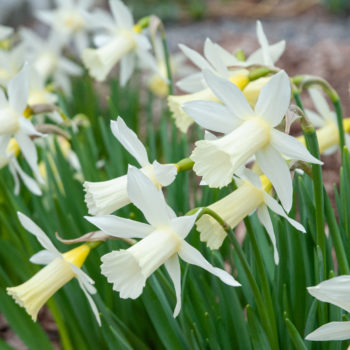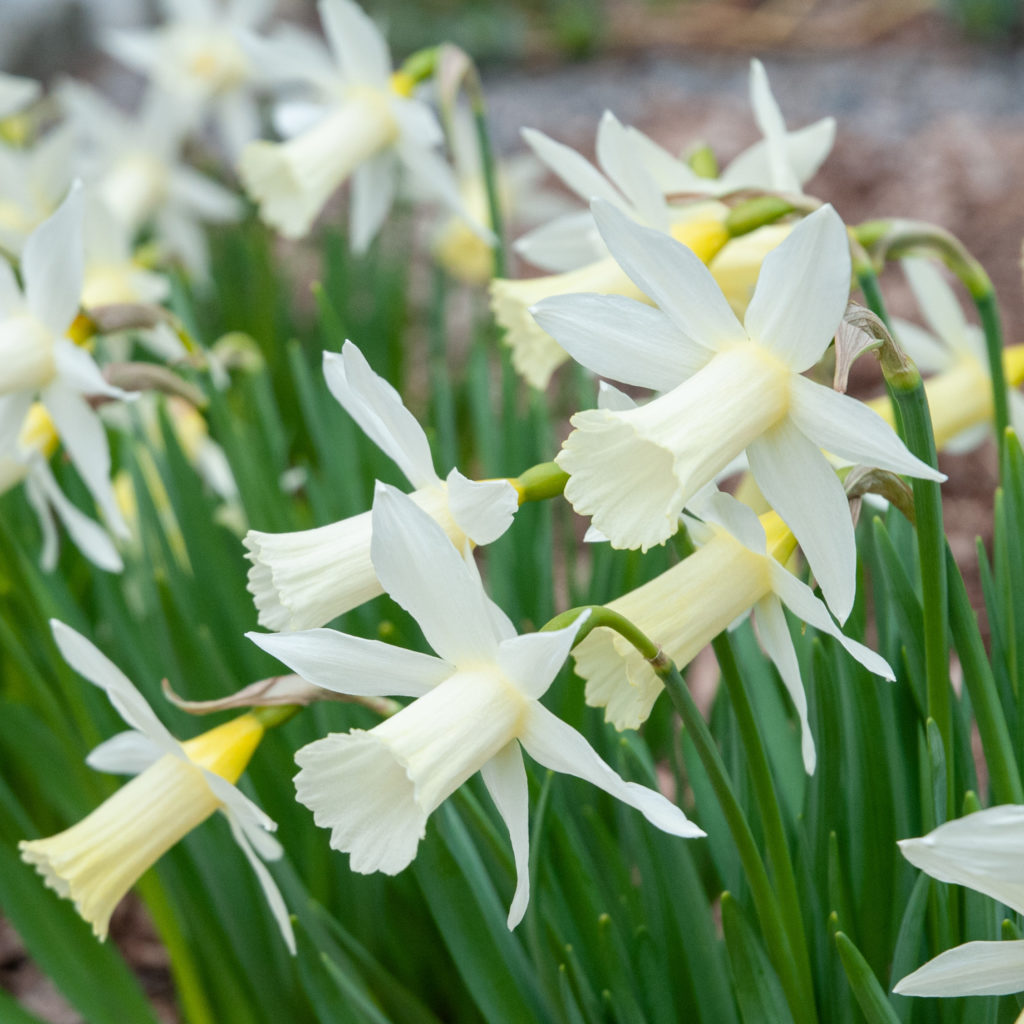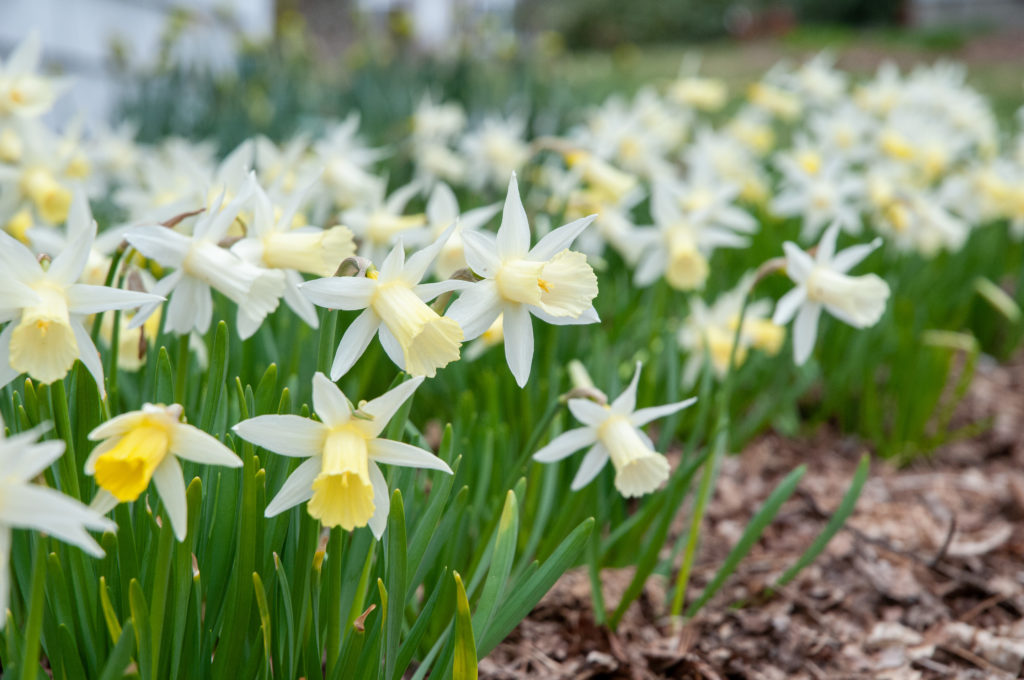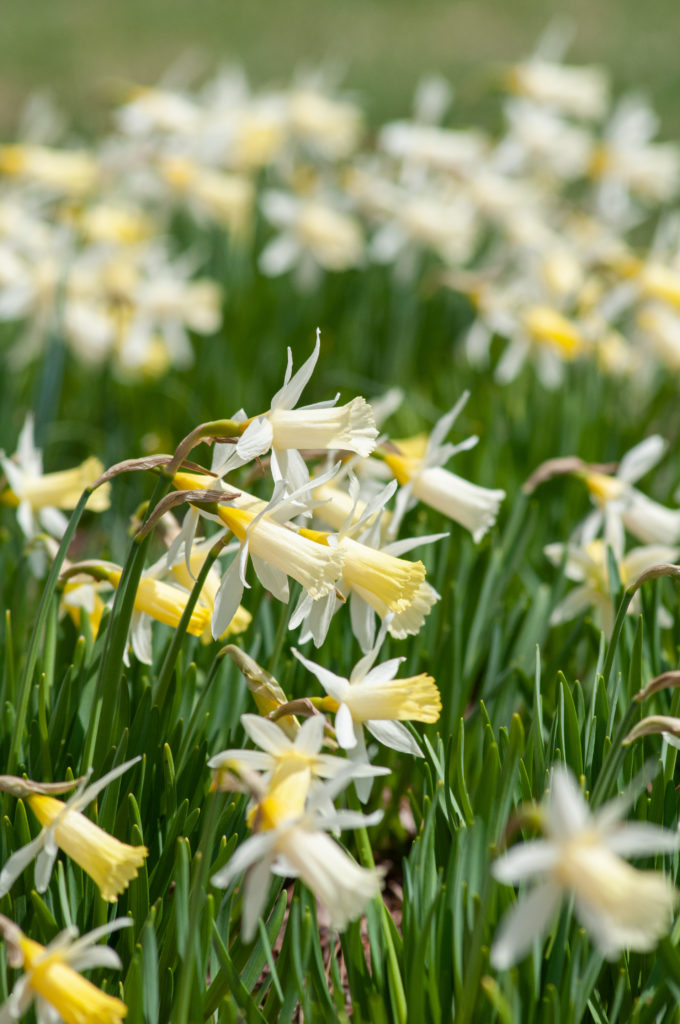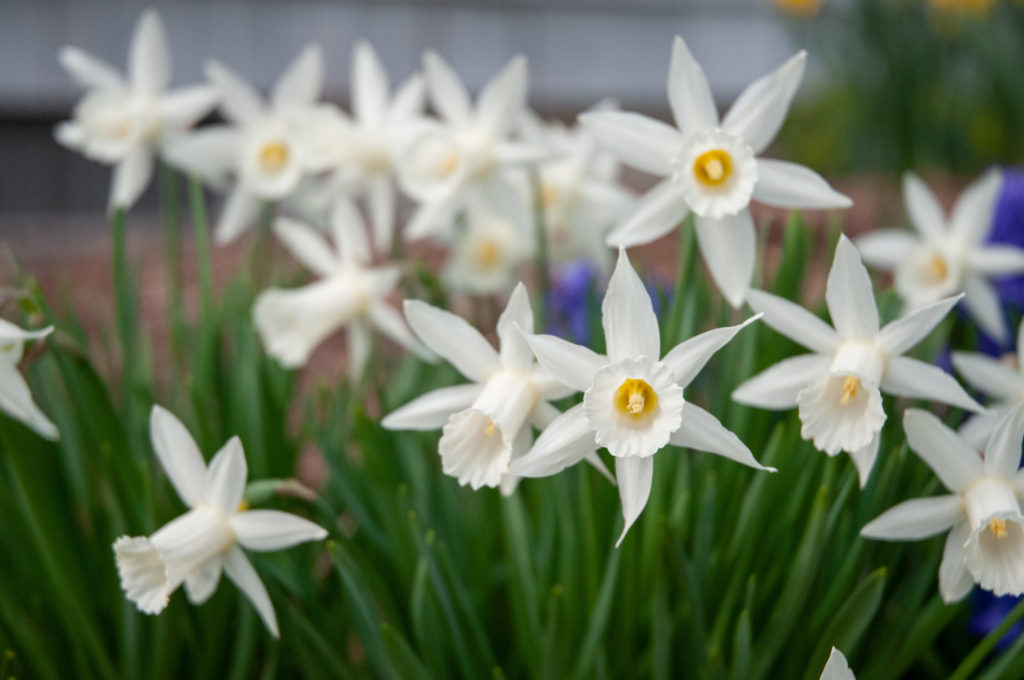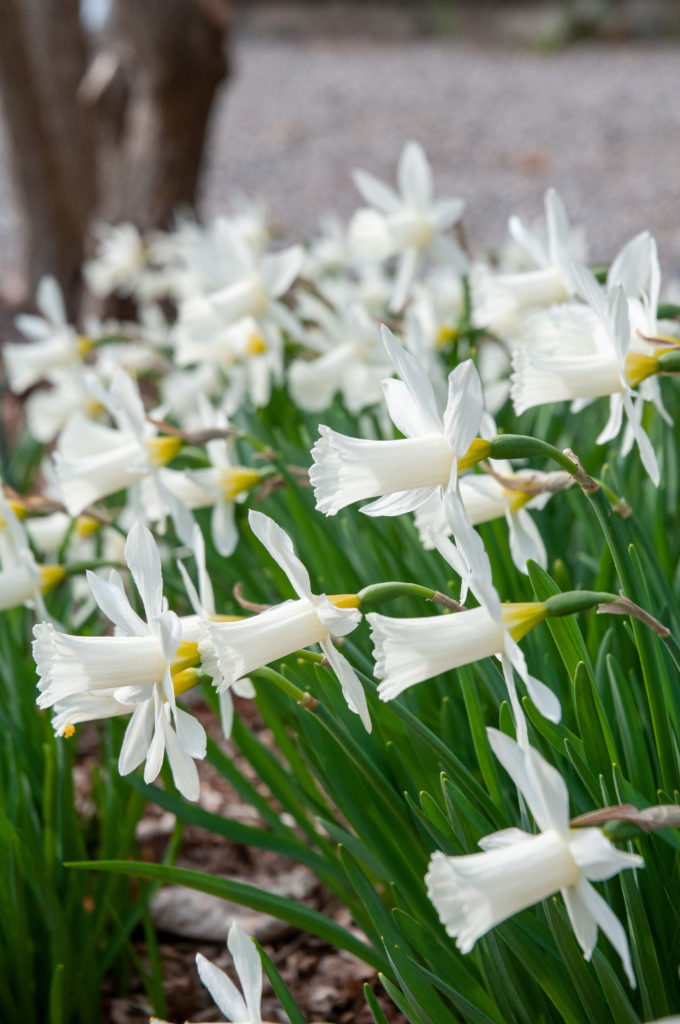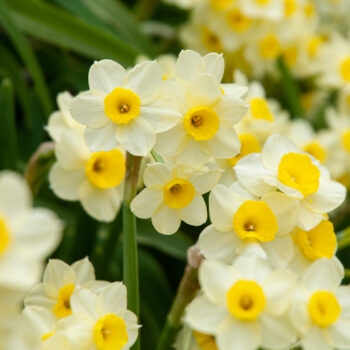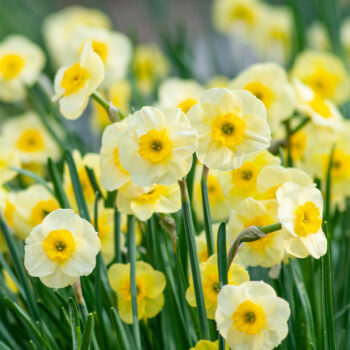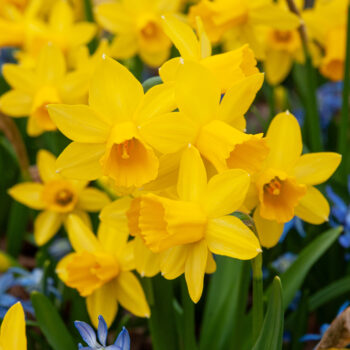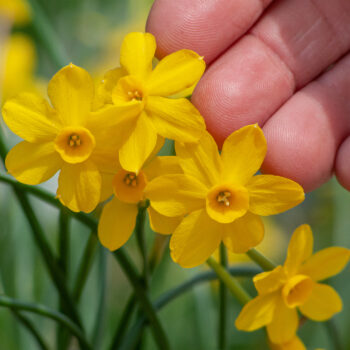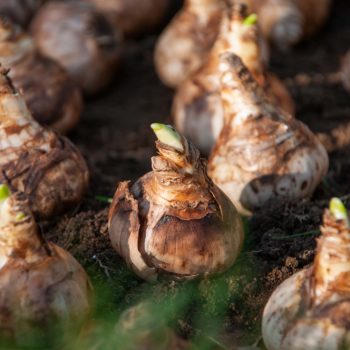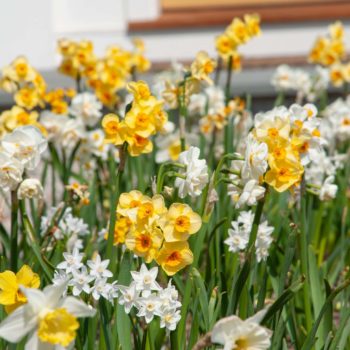Daffodil Elka
Specifications
Elka is a darling daffodil that stands about 8 inches tall. Its petals are white, its cup soft yellow upon opening. At maturity, the flowers are pure white. They twinkle above the grassy foliage like a galaxy of little stars.
Deer and Rodent Proof
| Item # | 3320 |
| Height | 6—8 inches |
| Sunlight | Full (6+ hours sun per day) |
| Soil | Well drained |
| Flower Color | White with Soft Yellow turning White |
| Bulb Size |
8-10cm ?
Bulb size is determined by the circumference around the largest part of the bulb. Colorblends only delivers top size bulbs. Large bulbs produce more or larger flowers than small bulbs.
|
| USDA Zones |
3a—7b ?
Hardy in USDA zones 3a to 7b in the South or 9b on the West Coast.
|
| Bloom Time | Early |
- early
- mid
- late
Delivery & Planting Times
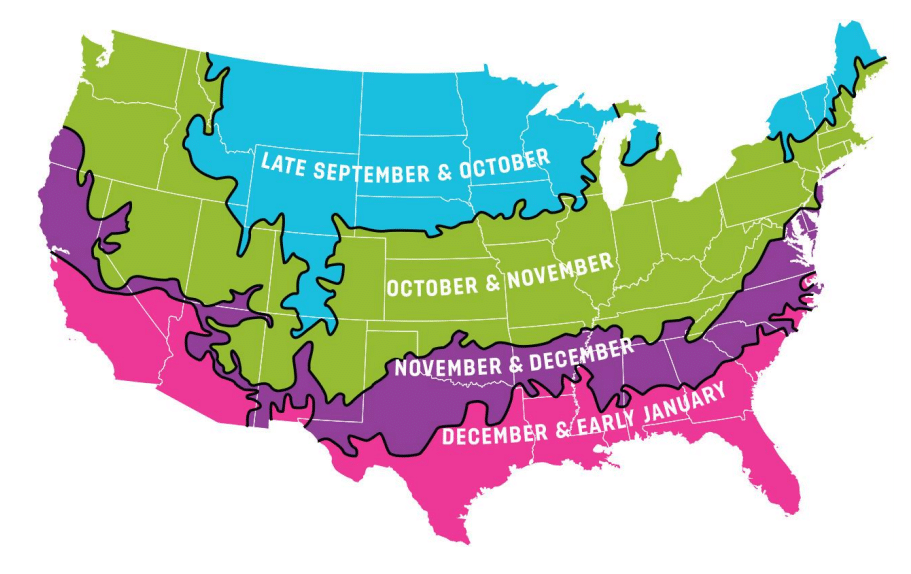
Spring-flowering bulbs must be planted in the fall. They need cool soil to make roots before the onset of winter. Cool fall weather arrives at different times from north to south and from high elevations to low.
Please note that the temperature of the soil lags behind the air temperature. You can generally plant later than the windows provided in this map. As long as the ground is not frozen, you can still plant.
Daffodil Elka
Elka is a darling daffodil that stands about 8 inches tall. Its petals are white, its cup soft yellow upon opening. At maturity, the flowers are pure white. They twinkle above the grassy foliage like a galaxy of little stars.
Deer and Rodent Proof
| Item # | 3320 |
| Height | 6—8 inches |
| Sunlight | Full (6+ hours sun per day) |
| Soil | Well drained |
| Flower Color | White with Soft Yellow turning White |
| Bulb Size |
8-10cm ?
Bulb size is determined by the circumference around the largest part of the bulb. Colorblends only delivers top size bulbs. Large bulbs produce more or larger flowers than small bulbs.
|
| USDA Zones |
3a—7b ?
Hardy in USDA zones 3a to 7b in the South or 9b on the West Coast.
|
| Bloom Time | Early |
- early
- mid
- late
Bulb Calculator
To find the number of bulbs you need, enter the square footage of the planting area in the box below.
Area
Square Feet
Density
Bulbs/sq. ft.
Bulbs Needed
When to Plant

Spring-flowering bulbs must be planted in the fall. They need cool soil to make roots before the onset of winter. Cool fall weather arrives at different times from north to south and from high elevations to low.
Please note that the temperature of the soil lags behind the air temperature. You can generally plant later than the windows provided in this map. As long as the ground is not frozen, you can still plant.
Planting Instructions
To get the most from daffodils, follow these 3 basic rules:
- Plant them where they will get at least 6 hours of direct sunlight, even after they have finished flowering and the trees have leafed out. Daffodils need lots of sun after they bloom to produce next year’s flowers.
- Plant them in soil that drains well. Avoid areas where water stands after a rain storm.
- After daffodils flower, wait at least 8 weeks — until the leaves turn yellow — before cutting them. Never tie or braid daffodil foliage. This year’s leaves = next year’s flowers.
If you want to naturalize daffodils (i.e., plant them so that they look as though they have sprung up on their own), we suggest that you set them out in drifts (not in blocks or lines) and that you space the bulbs farther apart than recommended on the bag label (to allow room for the clumps to increase in size). If you want to naturalize daffodils in a grassy area, you must wait to mow until their foliage has turned yellow, which means allowing the grass to grow very tall.
| Depth of Planting Hole | 4 inches |
| Spacing | 3 inches apart |
Planting Instructions
To get the most from daffodils, follow these 3 basic rules:
- Plant them where they will get at least 6 hours of direct sunlight, even after they have finished flowering and the trees have leafed out. Daffodils need lots of sun after they bloom to produce next year’s flowers.
- Plant them in soil that drains well. Avoid areas where water stands after a rain storm.
- After daffodils flower, wait at least 8 weeks — until the leaves turn yellow — before cutting them. Never tie or braid daffodil foliage. This year’s leaves = next year’s flowers.
If you want to naturalize daffodils (i.e., plant them so that they look as though they have sprung up on their own), we suggest that you set them out in drifts (not in blocks or lines) and that you space the bulbs farther apart than recommended on the bag label (to allow room for the clumps to increase in size). If you want to naturalize daffodils in a grassy area, you must wait to mow until their foliage has turned yellow, which means allowing the grass to grow very tall.
| Depth of Planting Hole | 4 inches |
| Spacing | 3 inches apart |

